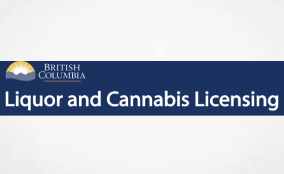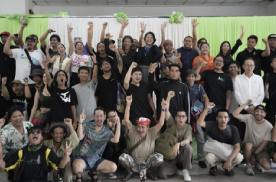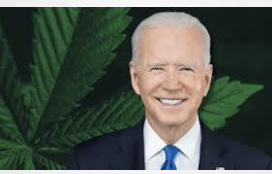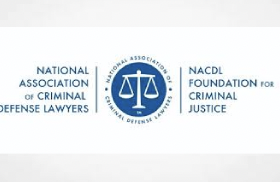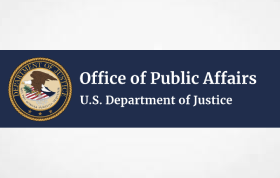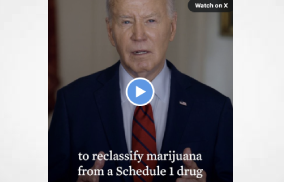Heady Vermont has the details
MONTEPLIER — Today, the Vermont Cannabis Control Board met to discuss licensing and provide the public with updates on the process. Last week, the Board approved eight new licenses and as of June 13, eight more licenses have been approved as well. They are as follows:
-
- Hella Gud, LLC** (Outdoor Cultivator Tier 1)
- VT Green Castle Reserve, LLC (Indoor Cultivator Tier 1)
- Victory Gardens** (Outdoor Cultivator Tier 1)
- DBA Edward’s* (Outdoor Cultivator Tier 1)
- Endyne Inc. (Testing Lab)
- DBA Geebee’s Organics (Mixed Use Cultivator Tier 1)
- Craft Cannabis of Vermont LLC (Indoor Cultivator Tier 1)
- Justin’s Craft Cannabis LLC (Indoor Cultivator Tier 1)
* = Social Equity Status
** = Economic Empowerment
Legacy Market in Vermont
Chair of the Control Board James Pepper began today’s meeting by addressing concerns with the legacy market in Vermont. For those not familiar with the term, it refers to the underground cannabis market that exists outside of the regulatory framework and has existed throughout cannabis prohibition.
Unlike many other legal states, Vermont lawmakers have opted to promote the transition from the legacy market to the regulated market. The majority of other legal states have essentially replaced the legacy market with big business, which is exactly what the Board and Vermont legislators want to avoid.
“We’re taking a different approach in Vermont,” says Pepper. “We’re really trying to shift the legacy market into a regulated space, so it’s the very people that have been incarcerated, or have been living under the threat of prosecution for decades that will benefit the most from this market.” He went on to mention how the Board consulted the legacy market during the rule development process in order to create the least restrictive regulations.
“We’re really trying to shift the legacy market into a regulated space, so it’s the very people that have been incarcerated, or have been living under the threat of prosecution for decades that will benefit the most from this market.”
Pepper also reminded viewers that while the existing regulatory framework may not satisfy everyone involved, they are “among the most lenient rules in the country” when it comes to requirements like insurance, security, criminal history records, reporting to the Board, and more.
With these goals in mind, the Board also took time to remind legacy growers of the consequences of continuing to operate in the shadows now that there is a fully regulated and legalized option in the state. If someone is found to be illegally producing and distributing cannabis, this sort of activity will impact their ability to get a license in the future.
“[Legacy growers] carried this plant through the dark days of prohibition. We’re finally approaching the light at the end of the tunnel. We want [legacy growers] in this market [to] share in the prosperity of this industry.” — James Pepper
Backlog in Application Approval
With hundreds of applications to sift through, the Board asked for patience to be exercised by applicants awaiting approval. “The next couple of months are probably going to be the most intense for everyone, especially those who have the faith to be early adopters…and then those who are moving from the legacy market into the regulated market,” said Board member Julie Hulburd.
Chair James Pepper reviewed the order of priority of application review starting with social equity, followed by women and minority-owned businesses, existing medical dispensaries, as well as whatever the market may dictate is necessary in the moment.
As we saw last week and further this week, the Board has begun to approve non-social equity applicants. This is due to the fact that there are many applications that fall under social equity status that remain incomplete. The Board strongly urges those who received word of their application being incomplete to remedy this and resubmit. Those whom this applies to will not lose their spot in line.
Pepper assured viewers that even new social equity status applications will also receive priority no matter when they are submitted. “This isn’t a static process. [When] new social equity applications come through, they are being prioritized but that doesn’t stop a standard application that was under review from moving forward,” he said.
A significant factor in the approval process has to do with market needs. In an industry that can become easily saturated, the Board is taking related concerns into account. Bottlenecks like testing pose a potential issue as more licenses are awarded. Due to a high volume of cultivators with only a small handful of places to test product under regulation, a slew of production and distribution issues could arise.
“We can’t just license a group of cultivators and not give them anywhere to comply with our testing protocol,” noted Pepper. “I would say on a staff to application ratio we’re moving as quickly, or quicker, than most other legal states in the country. We are prioritizing outdoor cultivators but we’re not ignoring our other priorities.”
It is worth noting that the Board’s licensing staff is about to double, subsequently increasing efficiency in licensure.
Packaging
As with many other industries in the state, fairly strict packaging regulations apply to cannabis businesses. All packaging has to be approved by the Board in order to ensure compliance with packaging requirements.
Up-to-date guidance on packaging requirements can be found on the Control Board’s website (ccb.vermont.gov/guidance). Pursuant to Act 158, this guidance includes changes that are intended to make make compliance with packaging requirements easier.
Cannabis flower no longer needs to be in child-resistant packaging, effectively eliminating the need for increased use of plastic. Alternatives include glass jars with a latch and tear-resistant paper bags. Additionally, cannabis no longer needs to be pre-packaged for consumer sale before it goes to retail, subsequently reducing cultivator overheard and allowing wholesale shipment.
The Board’s goal is to eliminate the use of plastic packaging in the cannabis industry as much as possible.
Other Meeting Items
- The Board will never call applicants asking for money. If you receive a phone call from someone claiming to be from the Board asking for money, hang up.
- All applicants with incomplete applications are encouraged to reach out to the Board via email (ccb.info@vermont.gov) with any questions or concerns. Email is preferred over calling.






